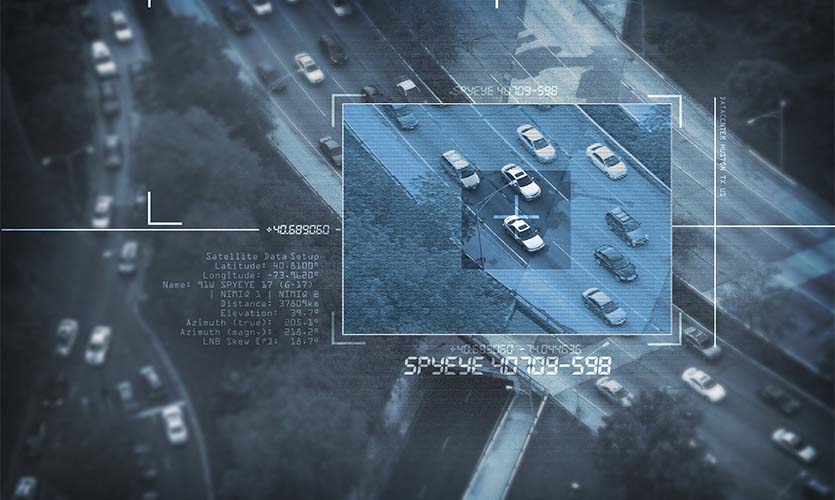The welcome rise and worrying fall in covert investigation

Covert techniques and specialist intelligence never appear to be far from the headlines. Whether it be concern over the Prime Minister’s delay in publication of the Intelligence and Security Committee of Parliament’s report into Russian interference in UK elections, or the use of intelligence to identify threats from recently released terrorist prisoners or the ongoing public inquiry into the use of undercover officers. Nor is the public interest limited to the United Kingdom. Recent reporting has covered the likes of the use of enhanced interrogation techniques against Al Qaeda operatives by US intelligence agencies, and the failure of intelligence sharing in the build-up to last year’s Sri Lankan Easter Sunday church bombings.
Methods deployed to support covert investigations and intelligence gathering are rightly subject to significant scrutiny. Without effective oversight in all of its forms, the current public confidence and ongoing consent for the use of specialist tactics may be delegitimised. However, as the inquiry into Iraq and weapons of mass destruction articulated – intelligence is more of an art than a science, and therefore intelligence failure will inevitably manifest itself at some stage of intelligence agency or law enforcement activity. The reason? It is because of the array of variables at work in any long-term complex operation, not all of which are in the gift of an agency to completely control. Auxiliary to this is a myriad of cognitive pathologies, often conspiring against an effective and truly objective analysis of the problems faced. Awareness and action against these challenges will not eliminate intelligence failure, but it may reduce the number of incidents, or at least mitigate the potential worst outcomes.
Intelligence can make a valuable contribution to identifying community threats and reducing harm. However even though the research shows that most effective interventions into serious organised crime and terrorism are delivered through the deployment of covert techniques, UK legal authorities for the tactic have fallen significantly, since the enactment of the Regulation of Investigatory Power Act of 2000. With hindsight, the introduction of the National Intelligence Model can now be viewed as the zenith in terms of the UK’s and the organisational commitment to intelligence-led policing. Now there is an end of cycle feeling to intelligence’s status among many law enforcement organisations, especially with the declining use of covert tactics. Some decline may be accounted for by the deployment of new or alternative intelligence/evidential collection techniques, or falls in police numbers. It may also be due to the disproportionate reduction in resources allocated to this aspect of enforcement, the failure to value the role of intelligence operatives and intelligence collection, the increased aversion to taking risky operational decisions, the perceived increasingly bureaucratic interpretation of legislation, the misplaced assessments of current covert capabilities, and the failure of declining current training provision to adapt to new criminal or terrorist behaviour.
Whatever the reasons for the decline, the consequences of falling covert human intelligence source numbers and other forms of covert collection and surveillance have a real-world consequence for the communities. How are public authorities going to ethically operate juvenile informants, safely send informants overseas to gather critical intelligence, effectively task informants online, deploy participating informants against serious organised crime, manage informants within closed environments, and deploy informants within vulnerable groups (including gangs responsible for child sexual exploitation or exploiting children in county-line drug supply routes)? The decline in authority numbers not only in CHIS but also directed surveillance are significant, and strategic leads need time and resources to consider the second and third order consequences of the failure to authorise covert activity.
Part of the solution in arresting this decline is investing in the existing professionalisation of covert and intelligence staff at all levels of organisations. This requires a significant step-change in the current approach to continuous professional development. Staff should be encouraged and supported in acquiring new knowledge, to build up an evidence-based policy and adapt working practices appropriately. For those looking to develop a career pathway through a deeper understanding of this area (including the future challenges of BREXIT and intelligence, intelligence collection in cyberspace, and the role of artificial intelligence) they may find a new course of some interest. A distance learning MSc Covert Investigation and Specialist Intelligence is offered by the Liverpool Centre for Advanced Policing, within the School of Justice Studies (SJS) at LJMU. The syllabus draws heavily on historical and contemporary intelligence practice and by doing so provides an opportunity to critically evaluate important issues in covert investigation and specialist intelligence.
The programme which has ethical covert investigation and intelligence collection at its heart explores the current and future strategic challenges for operatives. It seeks to further develop the skills and knowledge that emphasise clarity of thinking, ethical anchoring, and relevant evidence-based research. It has been designed especially for those intelligence professionals who while not having a first degree, do have extensive operational experience within the covert and intelligence arena.
Enrolment for this programme has opened with the course commencing September 2020. Anyone interested in applying should email Dr Ian Stanier directly or Peter Williams.
The price of studying for this new MSc is competitively costed (whether studied over one or two years) at £7,995. Alternatively, the Postgraduate Certificate level is costed at £3,495 and the Postgraduate Diploma level at £5,995.

.png?la=en&h=200&mw=800&w=360&hash=3BFCD9E04C8F29374066C5102504D6F8)
